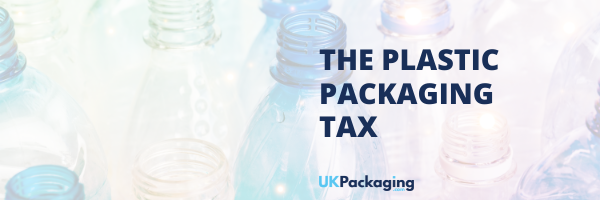The Plastic Packaging Tax
In just under a year, the government will be introducing the latest step in their bid to reduce plastics with the Plastic Packaging Tax. Whilst this tax is designed for importers and manufacturers of plastic packaging, it is likely to effect businesses and consumers throughout the supply chain in terms or both cost and potential liability. But what is PPT, and what will be affected?

In just under a year, the government will be introducing the latest step in their bid to reduce plastics with the Plastic Packaging Tax. Whilst this tax is designed for importers and manufacturers of plastic packaging, it is likely to effect businesses and consumers throughout the supply chain in terms or both cost and potential liability.
What Is It?
The Plastic Packaging Tax (PPT) is a tax which comes into force next year and will be applied to any plastics that are either imported into or manufactured in the UK that contains less than 30% recycled materials. This only applies to packaging wherein plastic is most prominent material, as calculated by weight. This tax with predominantly target manufacturers and importers, and will be taxed at £200 per tonne of qualifying 'tax liable' packaging that can't demonstrate the necessary amount of recycled materials. Biobased plastics are also included within this tax, although this is currently being reviewed by the government and they could eventually be made exempt to encourage alternative, organic, recycling. This will only be necessary in cases where over 10 metric tonnes per year are being either manufactured or imported.
There are two areas of exemption for this tax, the first of which being when the plastic is being used for the packaging of human medicines, whilst the second is when it is as transit packaging around imported goods.

Why Is It Being Introduced?
The introduction of PPT follows a series of measures to try to limit single use plastics and to improve the country's overall impact on the environment. This follows initial calls in 2017 for a tax system or additional charges to be put into place with a view to tackling single use plastic waste, a move which initially started in 2015 with the introduction of the plastic carrier bag charge. This has since been followed up last year with the ban on the supply of plastic straws, stirrers, and plastic-stemmed cotton buds which came into force on the 1st of October. Earlier this year, the government also increased the plastic carrier bag charge to 10p from 5p to further their clamp down on plastic waste. The initial proposals for PPT took place in the 2018 Budget, with the primary legislation being introduced in November 2020.
The hope is that the introduction of PPT should provide an incentive for businesses to use more recycled plastics in their packaging instead of virgin plastics, the use of recycled content in packaging expected to increase by around 40%. This should therefore lead to greater demand for both recycled and recyclable plastics which should also lead to a larger investment in recycling infrastructure overal alongside a diversion of plastics away from landfills and incinerators. The move for businesses away from virgin plastics could also lead them to invest more heavily in other environmentally friendly materials or into re-evaluating their plastics use in a big to reduce their overall packaging materials.

When Does It Take Effect?
This new tax will take effect from 1st April 2022.
What Does This Mean?
Whilst the tax itself does not directly effect consumers, the additional charges could be passed down to them through supplier price increases or increased costs brought on by packaging changes. The legislation has been drafted to allow for this charge to be passed on to end users, although this will be dependent on the individual importer/manufacturer and those along the supply chain.
For businesses, any that purchase packaging that may be taxable under PPT can be liable for the non-payment of the tax if they 'knew or had reasonable grounds to suspect' that the PPT hadn't been paid, with businesses expected to take 'reasonabe steps' to ensure payment. This will overall result in an increased administrative effort across the supply chain, with the likelihood that contracts will have to specify values including or excluding PPT and with the total PPT cost.


